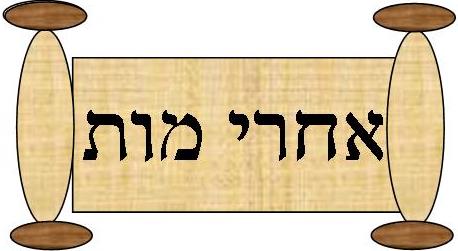In this week’s Parsha, Hashem commands the Jewish People: “You shall carry out my laws (Mishpatim) and my decrees (Chukim)” (18:4). It is well known that a Mishpat is an instruction whose reason is obvious to us, while a Chok is a Mitzvah whose reason is not clear to us. For example, we are required to honor our parents and take care of them, minimally to thank them for all they have done for us. Therefore, because we know at least part of the reason behind it, the Mitzvah to honor our parents is considered a Mishpat, not a Chok. However, in the very next Pasuk (verse), we are told, “You shall observe my decrees and my laws,” reversing the order of decrees and laws. Why in the first Pasuk was Mishpatim listed first, but in the very next Pasuk listed second?
Rav Yisroel Salanter (1810-1883), founder of the Mussar (Ethical Teachings) movement, explains that in the first Pasuk, the order presented is the one that can be readily understood – first the Mishpatim and only then the Chukim. It is only natural for that which we understand to precede what we do not understand. The next Pasuk then places Chukim first because it is describing the only way to guarantee a life of dedication to both Mishpatim as well as Chukim.
If a person lives a life of Mishpatim first, namely only adhering to religious precepts because he sees how just and proper they are, then there will come a time when it will not be worth it to simply ignore them. But if a person lives a life of Chukim first, and follows them even though he may not fully or even partially understand them, then he will surely stick to both Chukim and Mishpatim even when doing so may become quite difficult.
Rav Avishai David was a young boy about nine or ten years old when Rav Yekusiel Fuchs (Rav of the small shul in the Bronx where the David family davened) approached him, puzzled, asked, “Why is it that none of the Orthodox shuls are doing anything to address Yom HaShoah (Holocaust Memorial Day)? How can this be? We must do something! I lost my entire family in the Holocaust-every single last one- and we have to go to the Yom HaShoah ceremonies!” When youthful Avishai approached his father and asked what he should do in response to their Rabbi’s invitation, his father immediately responded, “What do you mean?! What’s the question? The Rav said to go, you go! What’s the discussion?” The two then traveled to Temple Emmanuel, a reform temple in Manhattan, to participate in a Holocaust commemoration. They did not enter, but rather stood outside and listened to the memorial proceedings. Rabbi David’s father understood very clearly that while it is definitely ideal to understand everything we do, when a situation arises and we are in the dark, we act first and only then make the attempt to understand. If we do achieve a level of understanding, great, but if we don’t, then we continue anyway. (It should be noted that since this incident the Orthodox community has gotten very involved in Holocaust commemoration, dealing with many of the issues that prevented mainstream Orthodox involvement when the story happened. One of the main reasons for non-involvement was the view that Tisha B’Av, the fast day commemorating the destruction of the two Temples in Yerushalayim, is also a day on which we remember all Jewish tragedies, and therefore Holocaust commemoration should be included in our Tisha B’Av observance. In fact, there have been certain prayers written remembering the Holocaust that are said on Tisha B’Av. This view was very strongly held by Rabbi Yosef Dov Halevi Soloveitchik, the Rosh Yeshiva of Yeshiva University.)
Prepared by Devorah Abenhaim







